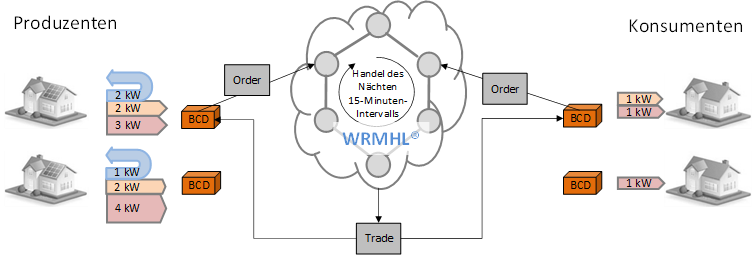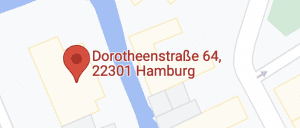Project Reference
ETIBLOGG
Energy of the future
PONTON and seven partners engaged in the ETIBLOGG project. ETIBLOGG stands for “Energy Trading vIa Blockchain-Technology in the LOcal Green Grid” and is supported by the Federal Ministry of Economic Affairs and Energy (BMWi). Obviously, the acronym says all: PONTON has developed a trading infrastructure that is so efficient that even fractions of kilowatt hours can be traded in real-time between prosumers and consumers. Typical scenarios are local grids in the neighbourhood but also area networks like shopping centres or industrial parks.
PONTON is among the most experienced software developers who has managed to tame blockchain technology for such demanding applications as local trading of energy. Together with experts in energy systems from GETEC Energie, hardware and embeded software designers from Mixed Mode and NXP, with economists from the University of Hamburg and the ESMT Berlin, with electrical engineers from Fraunhofer IISB and with software developers from Consider IT, PONTON has contributed their expertise to allow solar panels, battery storages, households, electric vehicles, air conditions systems, heat pumps and other devices take part in energy trading.
The consortium uses PONTON’s home-grown blockchain framework “WRMHL” to tackle issues, which appeared too hard for existing blockchain technologies.
ETIBLOGG supports two different P2P trading solutions:
- Sharing of energy between members of local energy communities
This solution enables producers and consumers to bunch together in virtual power groups and share energy at an agreed fixed price. Participants can monitor their daily production and consumption profiles in each group. Consumers may choose to join multiple groups, each with a price set by the producer. Also non-profit organizations may receive the power supply from producers who donate a share of their production. Last but not least there is always the energy supplier, who operates the trading platform, facilitates the allocation, and functions as the residual load supplier in case the production isn’t sufficient to match the consumption or vice versa.
The Software has been in use for a field test operated by an Austrian utility. Whenever electricity is shared, it is to the advantage of both producers and consumers.
- Direct real-time trading of electricity with physical delivery
This more advanced solution enables producers and consumers, for example in a microgrid, to trade power which is physically delivered in the short term from the seller to the buyer. The entire process is automated by devices with intelligent agents that enable participants to buy and sell power. This way, hundreds of electronic agents negotiate prices and quantities for deliveries which occur 15 minutes later. Prices are fully variable and depend on demand and supply. However, energy suppliers acting as residual load providers have the ability to set cap and floor prices and thus provide residual load services.
PONTON’s real-time trading platform may be used by operators of microgrids, by local grid operators, independent power producers and energy suppliers. As only the residual load is delivered over the higher grid layers, both the producer and consumer share significant economic benefit and help relaxing congestion situations – all leading to a win-win situation.
PONTON’s Enerchain trading platform has been adjusted for local P2P trading within the ETIBLOGG project (www.ponton.de/etiblogg) and will be demonstrated on European Utilities Week in Paris.
Find the ETIBLOGG flyer here (in German).










